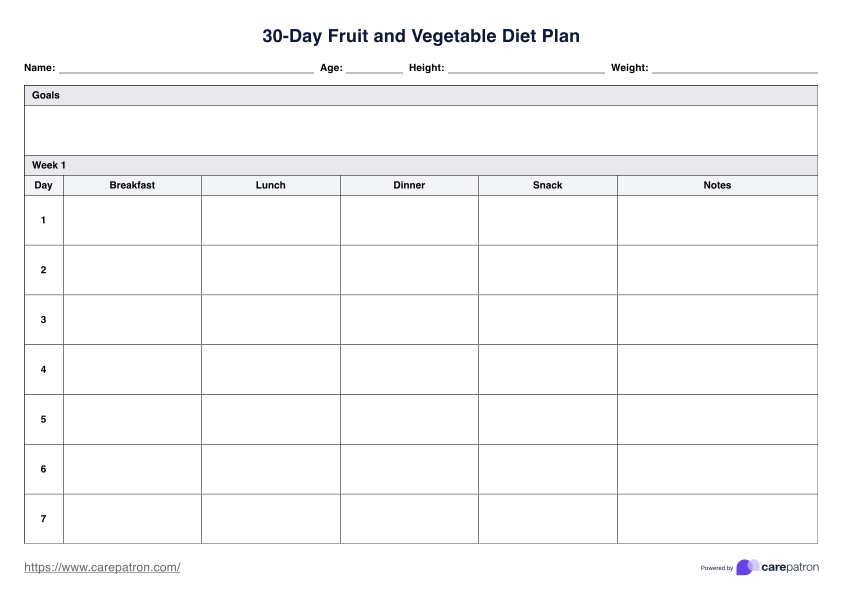The diet plan can be customized based on individual preferences, dietary restrictions, and nutritional needs. It's essential to consult with a healthcare professional or nutritionist to ensure that any modifications meet your specific requirements while providing adequate nutrition.

30-Day Fruit and Vegetable Diet Plan
Transform your patient's health with our 30-day fruit and vegetable diet to boost wellness and vitality. Start today!
30-Day Fruit and Vegetable Diet Plan Template
Commonly asked questions
While weight loss results may vary depending on factors such as metabolism, activity level, and starting weight, many people experience weight loss on the 30-Day Fruit and Vegetable Diet Plan. By focusing on nutrient-dense, low-calorie foods and reducing intake of processed foods and added sugars, participants may create a calorie deficit conducive to weight loss.
The diet plan may offer numerous health benefits, including improved heart health, better digestion, increased energy levels, and reduced risk of chronic diseases such as diabetes, hypertension, and certain cancers. The high intake of fruits and vegetables provides essential vitamins, minerals, and antioxidants that support overall health and well-being.
EHR and practice management software
Get started for free
*No credit card required
Free
$0/usd
Unlimited clients
Telehealth
1GB of storage
Client portal text
Automated billing and online payments











